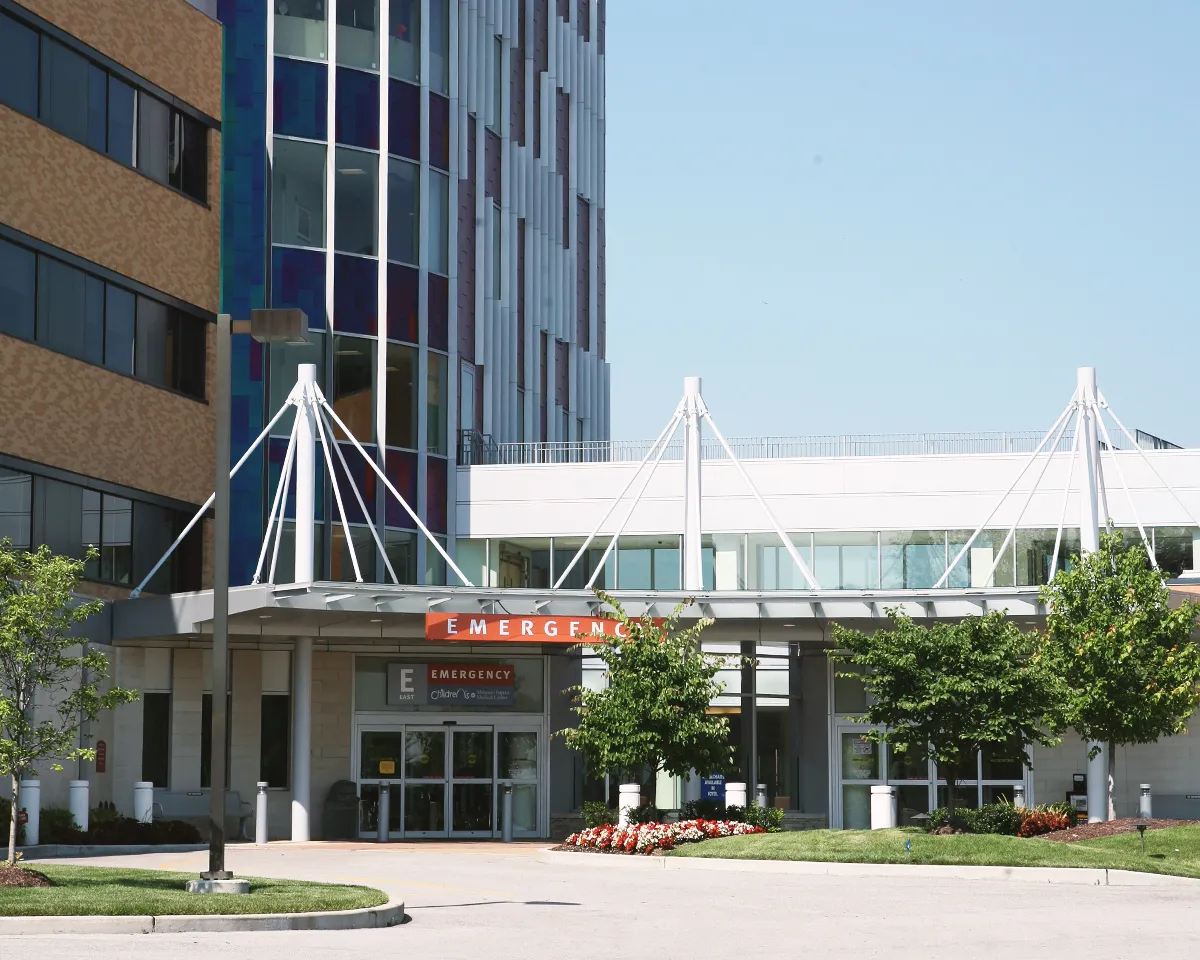Fertility and Reproductive Medicine
Everyone deserves to achieve their dream of building a family. We’re here to help you start your unique journey to parenthood. As a pioneer in the region for fertility care, we blend specialized expertise and advanced technology, delivering excellent outcomes and joyful moments
BJC HealthCare works with Washington University physicians, BJC Medical Group, and providers across the region to deliver extraordinary care. Choosing the right place for fertility testing and treatment is a crucial first step in your journey to parenthood. You need compassion, support and a care team you can trust. With BJC HealthCare, you’ll have access to:
Regional fertility leaders: People from all over the Midwest turn to us for our expertise in fertility care. Our pregnancy and live birth rates from IVF at the Fertility and Reproductive Center at Washington University and Barnes-Jewish are consistently higher than the national average.
High-volume fertility center: We evaluate and treat thousands of couples and individuals for infertility each year. These high numbers translate to a higher level of expertise in our physicians and more successful outcomes for our patients.
Experienced team: We partner with board-certified and fellowship-trained reproductive endocrinology and infertility specialists and genetic counselors and have experienced lab technicians. Their depth of expertise allows us to offer treatment even for the most complex cases of infertility.
Advanced technologies: In 1985, the first baby in Missouri conceived by in vitro fertilization (IVF) was born. The parents received IVF treatment at the Washington University School of Medicine at Jewish Hospital, now Barnes-Jewish Hospital. Today, we continue to offer pioneering treatments to help you build a family.
Personalized approach: Our goal is to provide the right fertility plan for your needs and situation. We tailor treatment to meet your individual needs. Treatment ranges from minimally invasive techniques or drug therapies to in vitro fertilization (IVF) or third-party reproduction (using donor sperm, donor eggs or a gestational carrier).
Inclusive care: We welcome all individuals, regardless of gender, sexual orientation or marital status. The Fertility and Reproductive Medicine Center at Washington University and Barnes-Jewish Hospital prides itself on offering comprehensive LGBTQIA+ family-building services. We are recognized as a 2022 Healthcare Equality Leader by the Human Rights Campaign Foundation.
You may feel confused and frustrated when pregnancy doesn’t happen according to plan. But a consultation with a fertility specialist can provide the answers and guidance you need. We recommend that you see a fertility specialist if you’ve been trying unsuccessfully for a year (six months if you’re over age 35) to become pregnant.
Seek help sooner if you:
Experience irregular or painful periods
Experience two or more miscarriages in a row
Need cancer treatment (either partner)
About one-third of infertility is attributed to the female partner, one-third to the male. In one-third of cases, both partners have factors that contribute. Our fertility doctors can test both partners to find out the cause of infertility — the first step toward successful treatment.
Simple tests such as blood tests, ultrasound imaging or semen analysis often can reveal fertility issues you or your partner may have. Armed with that information, you and your doctor can decide what fertility treatments best suit your needs.
Causes of infertility can include:
We draw on a broad range of infertility treatments, from medication to IVF, to optimize your chances of a successful pregnancy. Our surgeons can address some fertility problems, such as uterine fibroids or blocked sperm ducts, with minimally invasive surgical procedures. But your journey to parenthood will be unique, and there’s no one-size-fits-all care plan.
Treatments and services we offer for infertility include:
 Barnes-Jewish Hospital
Barnes-Jewish Hospital Memorial Hospital Shiloh
Memorial Hospital Shiloh Missouri Baptist Medical Center
Missouri Baptist Medical Center
Schedule your appointment
Call (314) 362-9355 or (800) 392-0936 to schedule your appointment with a fertility specialist.